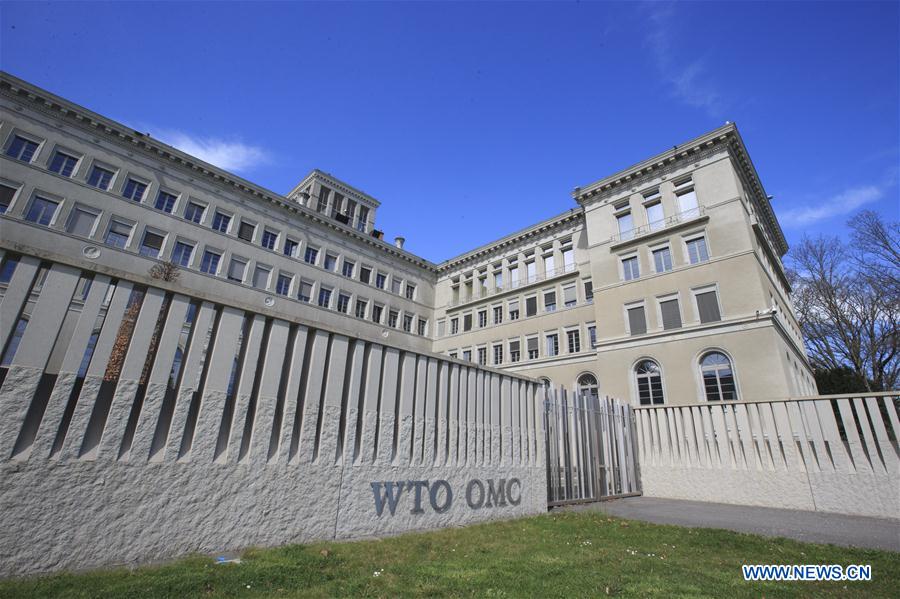A collection of free trade organizations on Wednesday called on the Trump administration to lead efforts to reform the World Trade Organization (WTO) Appellate Body, warning that current uncertainty is undermining the rules-based global trading system.

Photo taken on April 12, 2018 shows the World Trade Organization headquarters in Geneva, Switzerland. (Photo: Xinhua)
In a letter to U.S. President Donald Trump, 10 advocating groups, including Americans for Prosperity, The LIBRE Initiative and American Legislative Exchange Council championed the WTO dispute settlement system, noting it "has led to meaningful reductions in unfair practices" and greatly benefited the United States.
"We strongly urge you to state publicly that the goal of the United States is not to kill the Appellate Body, but rather to reform it," the organizations said.
"We further urge you to develop a reform proposal as quickly as possible and present it to WTO members, while indicating that adoption of such measures would lead to restarting the Appellate Body appointment process," they said.
The Appellate Body functions as the de facto court of appeals at the WTO and is comprised of seven members. At least three members are needed to hear an appeal, but nomination of new members has been blocked by the United States. If that remains the case, the body will have too few members to function by the end of this year.
A dysfunctional Appellate Body and a crippled dispute settlement system "are very worrisome," WTO spokesperson Keith Rockwell said recently, noting that this will open door to more unilateral actions.
During the annual meetings of the International Monetary Fund (IMF) and the World Bank last week, People's Bank of China Governor Yi Gang said resolving the deadlock over the WTO Appellate Body by unblocking its member selection and appointment process is "an immediate priority."
Yi added that the WTO should step up discussions on emerging issues such as e-commerce, trade in services, and investment facilitation, and explore ways to strengthen the rules-based multilateral framework to adapt to the evolving world.


